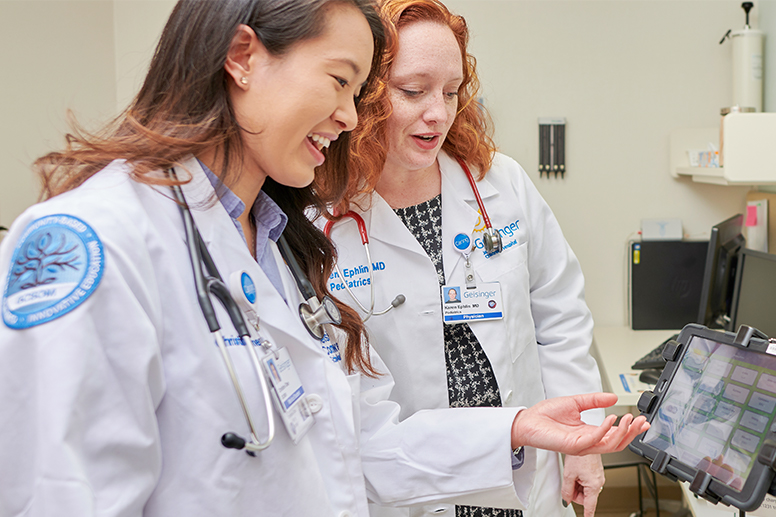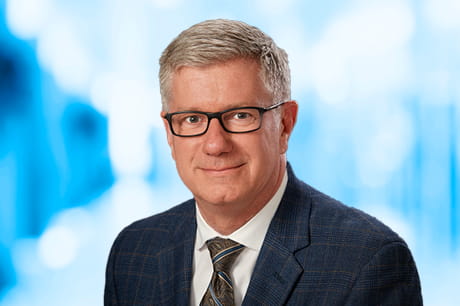
A message from the provost and vice dean for education
Today’s physicians are faced with an increasingly complex healthcare system that requires deft coordination, cultural humility, a strong commitment to equity, astute clinical reasoning and a commitment to the promotion of health.
At Geisinger Commonwealth School of Medicine, we are leveraging the strengths of Geisinger and our healthcare affiliates at Guthrie and AtlantiCare to provide you, our students, with the tools needed to become leaders in our evolving healthcare systems.
The Total Health Curriculum helps us accomplish this. This curriculum builds on emerging neurobiological evidence on knowledge acquisition, skill development and wellness to shape a robust approach to medical school teaching and learning.
Geisinger’s longstanding commitment to community engagement, patient access and clinical excellence is another driving force in shaping our particular approach to medical education.
Here, you’ll find a holistic approach to learning that uses evidence-based principles of education. Our curriculum is based on modern concepts of patient care, population health and health system science. Thus, the Total Health Curriculum is designed from the perspective of keeping patients healthy by understanding the body and the principles of public health and how to prevent and treat disease. Our approach, viewing medical education as an interlocking continuum, never loses sight of the big picture, which is effective, culturally competent and caring medical practice.
Education at Geisinger is designed to give you a patient- and community-centered education. Our curriculum will challenge you, reward you and set you on a path to a career that is rich and meaningful because of the way you were formed. Medical education is an incredible journey. We wish you luck as you take your first steps on the adventure.
William B. Jeffries, PhD
Vice Dean for Education, Geisinger Commonwealth School of Medicine
Provost, Geisinger College of Health Sciences
Office of the Provost

